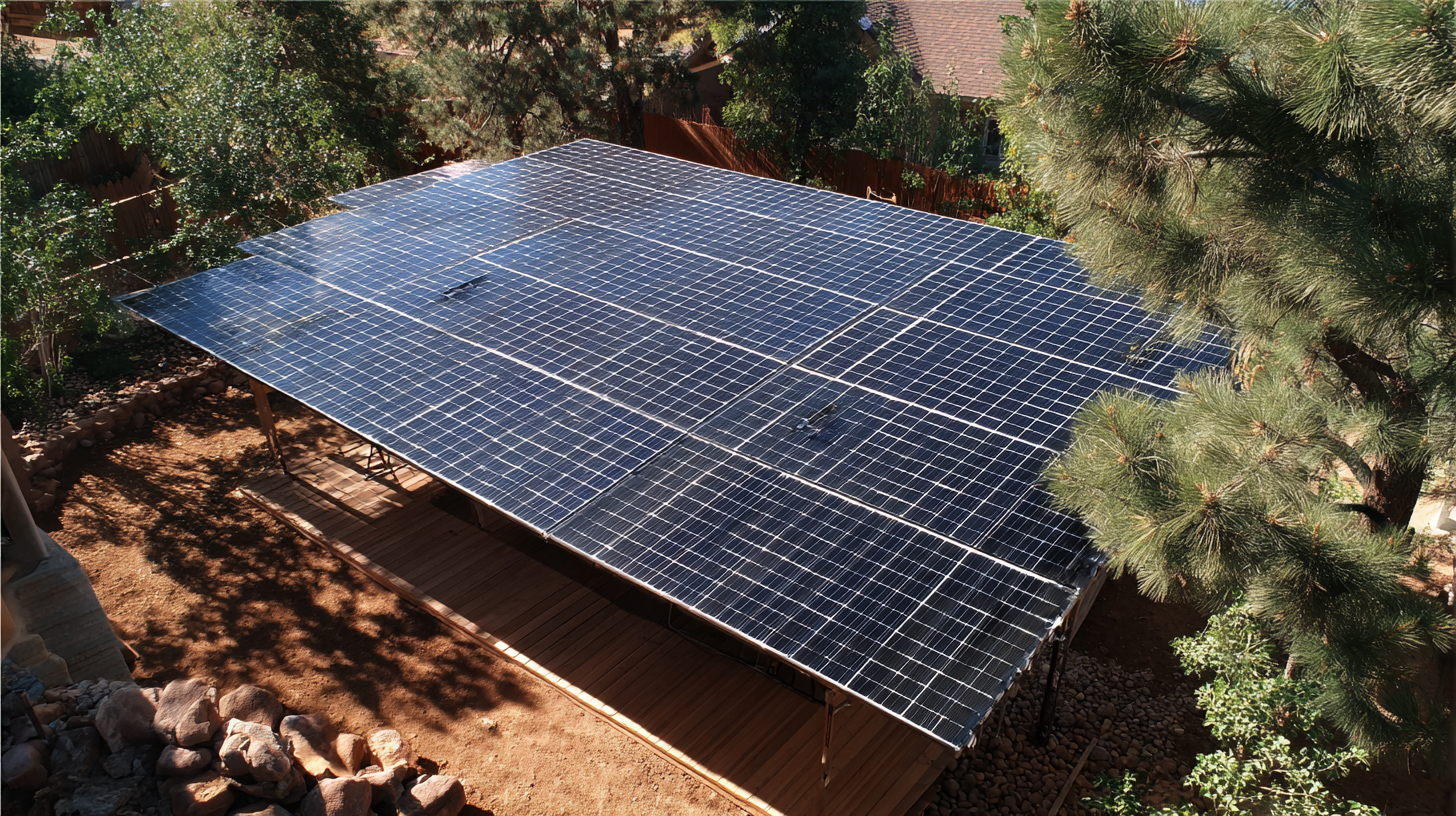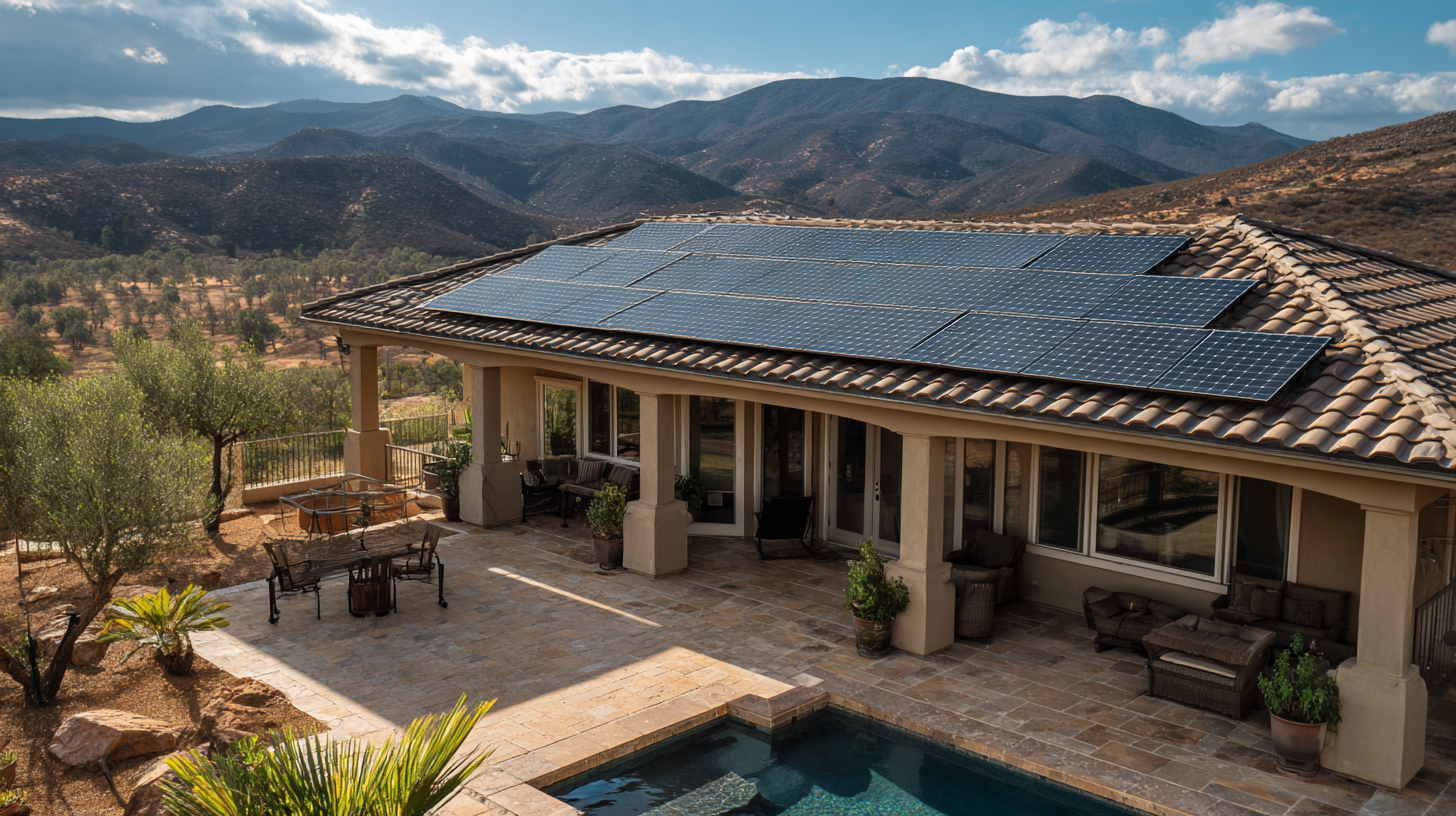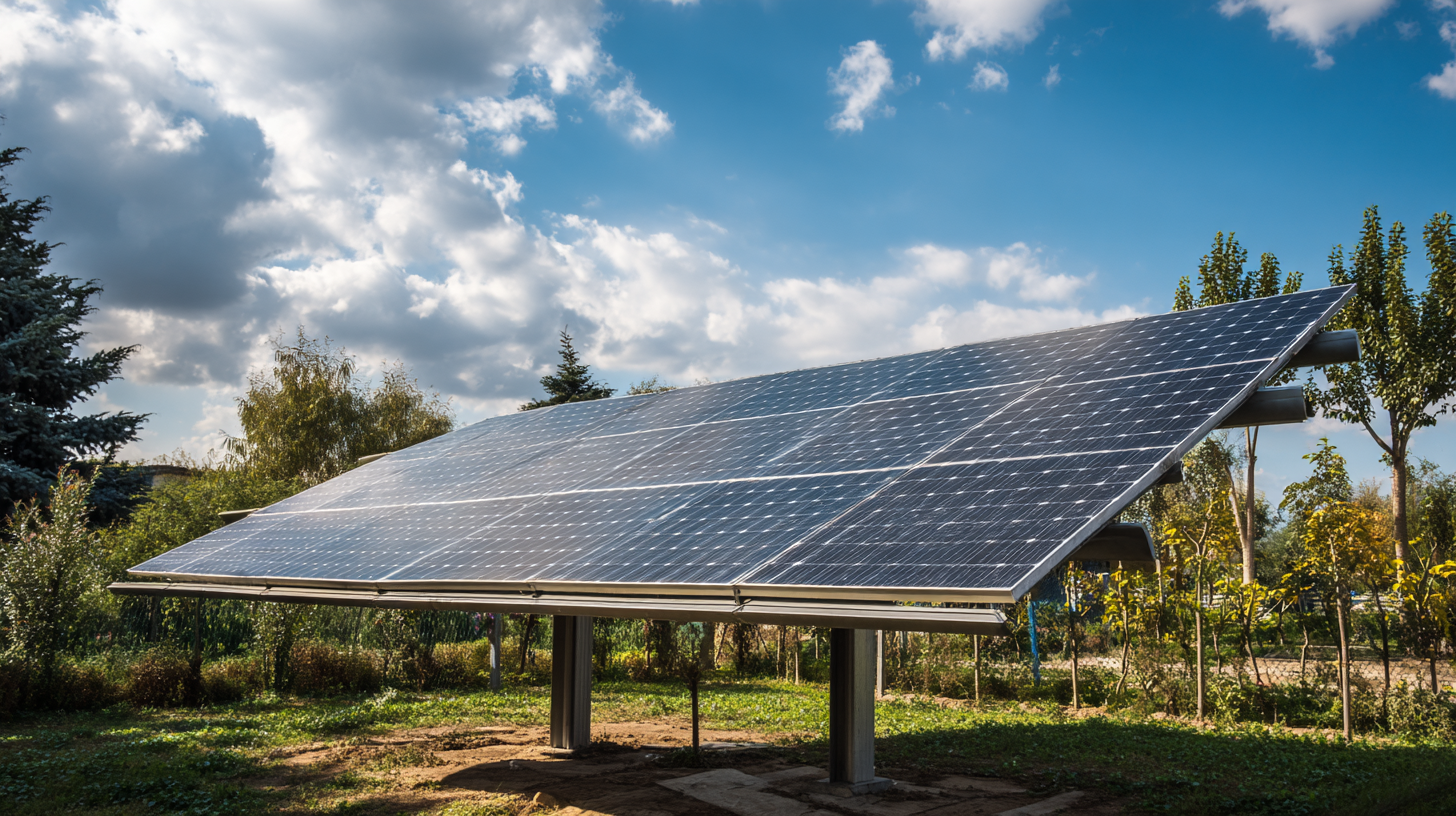ALL PRODUCTS
- Solar Panel
- Hybrid Inverter
- Lithium Battery
GSB SOLAR LITHIUM BATTERIES
- Gel Battery
- Solar Street Lights
- Pump Inverter
As the demand for renewable energy sources grows, many homeowners are considering the installation of a solar power system to reduce their carbon footprint and lower energy bills. According to the Solar Energy Industries Association (SEIA), residential solar has increased by over 167% in the last five years, reflecting a significant shift towards sustainability. However, with various options available, selecting the right solar power system can be daunting. Factors such as energy needs, roof space, and budget play crucial roles in this decision-making process. A recent report from the National Renewable Energy Laboratory (NREL) indicates that homeowners who take the time to evaluate their specific requirements can optimize their investment and potentially increase their overall savings by 20-30%. Therefore, understanding the different types of solar power systems available is essential for making an informed choice that aligns with your home’s unique energy needs.

Choosing the right solar power system for your home begins with a thorough understanding of your energy needs. The first step in this process is to calculate your current energy consumption. Gather your utility bills from the past year to identify monthly energy usage trends. This will give you a clear picture of how much electricity your household consumes on average. By knowing your daily kilowatt-hour usage, you can make informed choices about the type and size of solar system that best suits your needs.
Another crucial aspect to consider is future projections of your energy consumption. As households evolve, so too do their energy requirements; for example, you may plan to purchase electric vehicles, install energy-hungry appliances, or increase the number of occupants in your home. Anticipating these changes allows you to choose a solar power system that not only meets your current needs but is also scalable for future consumption. By accounting for both present and projected energy use, you'll ensure a more sustainable and efficient solar solution tailored to your lifestyle.
When considering a solar power system for your home, it's essential to understand the different types available: grid-tied, off-grid, and hybrid systems. Grid-tied systems are the most common, connecting directly to the local utility grid. This setup allows homeowners to utilize solar energy during the day and send excess energy back to the grid, often earning credits in the process. It’s a cost-effective choice, as it leverages the infrastructure already in place and typically requires less battery storage, resulting in lower initial investment.
On the other hand, off-grid systems are designed for complete energy independence. These systems are ideal for remote locations or for those who want to detach from the utility grid entirely. Off-grid setups include solar panels, a charge controller, batteries for energy storage, and an inverter for converting the stored energy into usable power. While off-grid systems can be more expensive due to the need for extensive battery banks, they offer reliability during outages and can be customized to meet specific energy needs.
Hybrid systems combine the features of grid-tied and off-grid systems, providing flexibility and resilience. Homeowners can use solar energy, draw from the grid, and rely on stored battery power whenever needed. This system is particularly beneficial in areas prone to power outages or where utility rates fluctuate significantly. By understanding these options, homeowners can make informed decisions based on their energy needs, budget, and lifestyle preferences.
When considering a solar power system for your home, evaluating the efficiency of solar panels is crucial. Efficiency refers to the percentage of sunlight that a panel can convert into usable electricity. Higher efficiency ratings mean that less space is needed for installation, making them a great option for homes with limited roof area. Standard metrics such as the temperature coefficient, which indicates how much efficiency drops with rising temperatures, and the degradation rate, reflecting how quickly a panel loses its potency over time, are important factors to consider. Panels with lower degradation rates will perform better and last longer, adding more value to your investment.
Another critical element in efficiency evaluation is the panel's performance under real-world conditions, often communicated through the panel's warranty and testing certifications like IEC 61215 and UL 1703. Industry-leading manufacturers typically provide a performance guarantee that ensures their products will maintain certain output levels even after years of use. By understanding these key metrics and industry standards, homeowners can make informed decisions, ensuring that their investment in solar energy is not only sustainable but also economically sound.
| Metric | Standard Values | Notes |
|---|---|---|
| Panel Efficiency | 15% - 22% | Higher efficiency means more electricity generated. |
| Wattage | 250W - 400W per panel | Choose higher wattage panels for better performance. |
| Temperature Coefficient | -0.2% to -0.5% per °C | Indicates performance drop at higher temperatures. |
| Warranty Period | 10 - 25 years | Longer warranties typically indicate better quality. |
| Degradation Rate | 0.3% - 1% per year | Lower rates signify more durable panels. |
When considering a solar power system for your home, understanding the financial implications is crucial. According to the Solar Energy Industries Association (SEIA), the average cost of installing a solar energy system has dropped by more than 70% since 2010, making it an increasingly attractive option for homeowners. In many regions, government incentives such as the Federal Investment Tax Credit (ITC) can cover up to 26% of the initial installation costs. These incentives significantly reduce the financial barrier and allow homeowners to recoup their investments more quickly.
 The payback period for solar installations typically ranges between 5 to 7 years, depending on location and energy usage. A report from Lazard reveals that the cost of utility-scale solar has fallen to around $36 per MWh, which is often less than fossil fuel sources. Over the lifespan of the system, which can exceed 25 years, homeowners may save tens of thousands of dollars on electricity bills. With rising energy prices and improving technology, long-term savings become even more pronounced, making solar energy a financially sound decision for many families.
The payback period for solar installations typically ranges between 5 to 7 years, depending on location and energy usage. A report from Lazard reveals that the cost of utility-scale solar has fallen to around $36 per MWh, which is often less than fossil fuel sources. Over the lifespan of the system, which can exceed 25 years, homeowners may save tens of thousands of dollars on electricity bills. With rising energy prices and improving technology, long-term savings become even more pronounced, making solar energy a financially sound decision for many families.
Choosing the right installer for your solar power system is crucial for ensuring a successful and efficient installation. Start by checking the certifications of potential installers. Look for those accredited by reputable organizations, such as the North American Board of Certified Energy Practitioners (NABCEP). These certifications indicate that the installer has met industry standards and possesses the necessary expertise to provide quality service.
Experience is another key factor to consider. Evaluate how long the installer has been in the business and their portfolio of completed projects. An experienced installer will not only have a solid technical background but also insights into local regulations and potential challenges specific to your area. Don't hesitate to ask for references or examples of previous work, which can give you a better understanding of their capabilities.
Finally, customer reviews are invaluable when selecting an installer. Check online platforms and forums to gather feedback from previous clients. Pay attention to comments regarding the installation process, customer service, and post-installation support. This information will help you gauge the installer’s reliability and quality of work, ensuring you make an informed decision for your solar power system.







